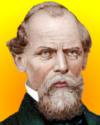
On 12 Jun 1806, a German-American engineer was born that you may be able to name in the quiz below.
His mastery of the production and use of steel cables to build suspension bridges produced significant bridges, including the Brooklyn Bridge, still in use today. Yet he also left a legacy in the technique of building suspension bridges from which followed many more to the present day.
So significant an engineer did not pass without note. The city of Trenton, New Jersey, dedicated a monument, a bronze statue, to him. A short biography of this engineer was included in the Introduction of a booklet printed to record the ceremony.

On 12 Jun 1806, a German-American engineer was born, who developed and made extensive use of steel cables in bridge-building with astonishing success. He died before his famous project, the Brooklyn Bridge, was finished, but his son took over the family business. Today's book pick is: The Builders of the Bridge: The Story of John Roebling and His Son, by D.B. Steinman, who tells the story of these two engineers. The significant substories within the book describe the development of wire rope; the construction of the first successful suspension bridge across the Niagara Gorge; the details of construction of the Brooklyn Bridge; and the comparison of the sway bracing of the Brooklyn Bridge and the Tacoma Narrows Bridge and the ultimate fate of the latter.
It is available from Amazon, typically about Used from $5.48. (As of earlier time of writing - subject to change.)
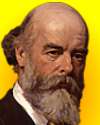 | Men of Science would do well to talk plain English. The most abstruse questions can very well be discussed in our own tongue … I make a particular appeal to the botanists, who appear to delight in troublesome words. |
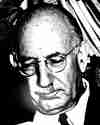 | Since biological change occurs slowly and cultural changes occur in every generation, it is futile to try to explain the fleeting phenomena of culture by a racial constant. We can often explain them—in terms of contact with other peoples, of individual genius, of geography—but not by racial differences. |
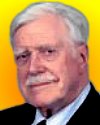 | The achievements of the Beagle did not just depend on FitzRoy’s skill as a hydrographer, nor on Darwin’s skill as a natural scientist, but on the thoroughly effective fashion in which everyone on board pulled together. Of course Darwin and FitzRoy had their quarrels, but all things considered, they were remarkably infrequent. To have shared such cramped quarters for nearly five years with a man often suffering from serious depression, prostrate part of the time with sea sickness, with so little friction, Darwin must have been one of the best-natured people ever! This is, indeed, apparent in his letters. And anyone who has participated in a scientific expedition will agree that when he wrote from Valparaiso in July 1834 that ‘The Captain keeps all smooth by rowing everyone in turn, which of course he has as much right to do as a gamekeeper to shoot partridges on the first of September’, he was putting a finger on an important ingredient in the Beagle’s success. |
| Before you look at today's web page, see if you can answer some of these questions about the events that happened on this day. Some of the names are very familiar. Others will likely stump you. Tickle your curiosity with these questions, then check your answers on today's web page. | |
| Births | |
 | Sir Oliver Joseph Lodge, born on 12 Jun 1851, was a British physicist who perfected the coherer, a detector important in the early days of a new field of science. What did this coherer detect? |
 | This German-American engineer, born 12 Jun 1806, pioneered the design and construction of suspension bridges, including the Brooklyn Bridge. In 1831 he immigrated to Saxonburg, near Pittsburgh, Pa., and shortly thereafter was employed by the Pennsylvania Railroad Corp. to survey its route across the Allegheny Mountains. He then demonstrated the practicability of steel cables in bridge construction and in 1841 established at Saxonburg the first U.S. factory to manufacture steel-wire rope. He utilized steel cables for numerous suspension bridges including a railroad suspension bridge over the Niagara River at Niagara Falls. He designed the Brooklyn Bridge but, while supervising preliminary construction operations, was injured and died. Can you name this engineer? |
| Deaths | |
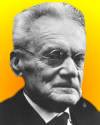 | Karl von Frisch (1886-1982) was a zoologist whose studies of communication among certain life form added significantly to the knowledge of the chemical and visual sensors of insects and simple animals. He shared the 1973 Nobel Prize for Physiology or Medicine. He showed that the objects of his study have the ability to recognize different odours and tastes, and discovered their famous “waggle dance” used to communicate among with others. What did he study that use the “waggle” dance? |
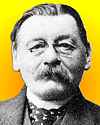 | Ferdinand Zirkel (1838-1912) was a German geologist and pioneer in microscopic petrography. What is petrography? |
| Events | |
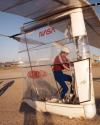 | On 12 Jun 1979, a unique craft flew across the English Channel, an airplane powered solely by human power. Cyclist Bryan Allen used a pedalling mechanism. What was the name of this first aircraft which was successful in human-powered flight? |
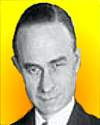 | On 12 Jun 1933, the electrobasograph invented by Dr R. Plato Schwartz (1894-1965) of The Myodynamics Laboratory of the University of Rochester, N.Y., was first exhibited in the U.S. to the American Medical Association convention in Milwaukee, Wisc. What did the electrobasograph measure? |
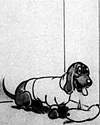 | On 12 Jun of a certain year, the first animated cartoon made in the U.S. by modern techniques was released. John Randolph Bray invented and patented the process, producing a movie called The Artist’s Dream (also known as The Dachshund) in which a dog eats sausages until it explodes. He patented many improvements of his animation process, realizing early on the business potential of these developments. One innovation was to use translucent paper to make it easier to position successive drawings. In what decade was did Bray make this innovative cartoon? |
Fast answers for the previous newsletter for June 11: minesweeper • mechanical refrigeration • Scientific American • gunpowder • barometer • chlorofluorocarbons as a propellant in spray cans.
 If you enjoy this newsletter, the website, or wish to offer encouragement or ideas, please send feedback by using your mail reader Reply button.
If you enjoy this newsletter, the website, or wish to offer encouragement or ideas, please send feedback by using your mail reader Reply button. Your click on a Facebook, StumbleUpon, or other social button on the site webpages is also a welcome sign of appreciation. Thank you for using them.
© This newsletter is copyright 2020 by todayinsci.com. Please respect the Webmaster's wishes and do not put copies online of the Newsletter — or any Today in Science History webpage. (If you already have done so, please remove them. Thank you.) Offline use in education is encouraged such as a printout on a bulletin board, or projected for classroom viewing. Online, descriptive links to our pages are welcomed, as these will provide a reader with the most recent revisions, additions and/or corrections of a webpage. For any other copyright questions, please contact the Webmaster by using your mail reader Reply button.
--
If you do not want to receive any more newsletters, Unsubscribe
To update your preferences and to unsubscribe visit this link
Executive Real Estate Business Class
-
"It was like a man with wings. It wasn't like anything you'd see on TV or in a monster movie." ...
About the publisher
Search This Blog
Blog Archive
-
▼
2021
(585)
-
▼
June
(64)
- On This Day for June 30 - Night of the Long Knives...
- Newsletter for Wednesday 30 June.
- On This Day for June 29 - London's Globe Theatre d...
- Newsletter for Tuesday 29 June.
- On This Day for June 28 - Assassination of Archduk...
- Newsletter for Monday 28 June.
- On This Day for June 27 - Yen made official moneta...
- Newsletter for Sunday 27 June.
- On This Day for June 26 - Opening of CN Tower, Bab...
- Newsletter for Saturday 26 June.
- On This Day for June 25 - Korean War begun, Antoni...
- Newsletter for Friday 25 June.
- On This Day for June 24 - Russia invaded by Napole...
- Newsletter for Thursday 24 June.
- On This Day for June 23 - Battle of Bannockburn, C...
- Newsletter for Wednesday 23 June.
- On This Day for June 22 - Mutiny against Henry Hud...
- Newsletter for Tuesday 22 June.
- On This Day for June 21 - Japanese forces defeated...
- Newsletter for Monday 21 June.
- On This Day for June 20 - Casket Letters found, Ho...
- Newsletter for Sunday 20 June.
- Tonight at 8/7c: Watch ‘Fight the Power’
- On This Day for June 19 - Rosenbergs executed for ...
- Newsletter for Saturday 19 June.
- On This Day for June 18 - War of 1812 begun, Sir P...
- Newsletter for Friday 18 June.
- On This Day for June 17 - Arrest of O.J. Simpson, ...
- Newsletter for Thursday 17 June.
- On This Day for June 16 - First woman in space, Jo...
- Newsletter for Wednesday 16 June.
- On This Day for June 15 - Magna Carta sealed by Ki...
- Newsletter for Tuesday 15 June.
- On This Day for June 14 - First prisoners at Ausch...
- Newsletter for Monday 14 June.
- On This Day for June 13 - Historic meeting between...
- Newsletter for Sunday 13 June.
- On This Day for June 12 - Election of Boris Yeltsi...
- Newsletter for Saturday 12 June.
- Listen Now! Blindspot: Tulsa Burning Podcast
- On This Day for June 11 - Oklahoma City bomber exe...
- Newsletter for Friday 11 June.
- On This Day for June 10 - First “witch” hanged in ...
- Newsletter for Thursday 10 June.
- On This Day for June 9 - Landslide reelection vict...
- Newsletter for Wednesday 9 June.
- On This Day for June 8 - Michelangelo's David inst...
- Newsletter for Tuesday 8 June.
- Action required: Update your HistoryExtra password
- On This Day for June 7 - Lateran Treaty ratified, ...
- Newsletter for Monday 7 June.
- On This Day for June 6 - Normandy Invasion begun, ...
- Newsletter for Sunday 6 June.
- On This Day for June 5 - Start of the Six-Day War,...
- Newsletter for Saturday 5 June.
- On This Day for June 4 - Dunkirk evacuation ended,...
- Newsletter for Friday 4 June.
- Tonight: ‘Alone’ Returns at 9:30/8:30c
- On This Day for June 3 - Pro-democracy protest in ...
- Newsletter for Thursday 3 June.
- On This Day for June 2 - Elizabeth II crowned quee...
- Newsletter for Wednesday 2 June.
- On This Day for June 1 - Debut of CNN, Morgan Free...
- Newsletter for Tuesday 1 June.
-
▼
June
(64)
-
Blogroll
-
About
HistoryFact










0 comments:
Post a Comment